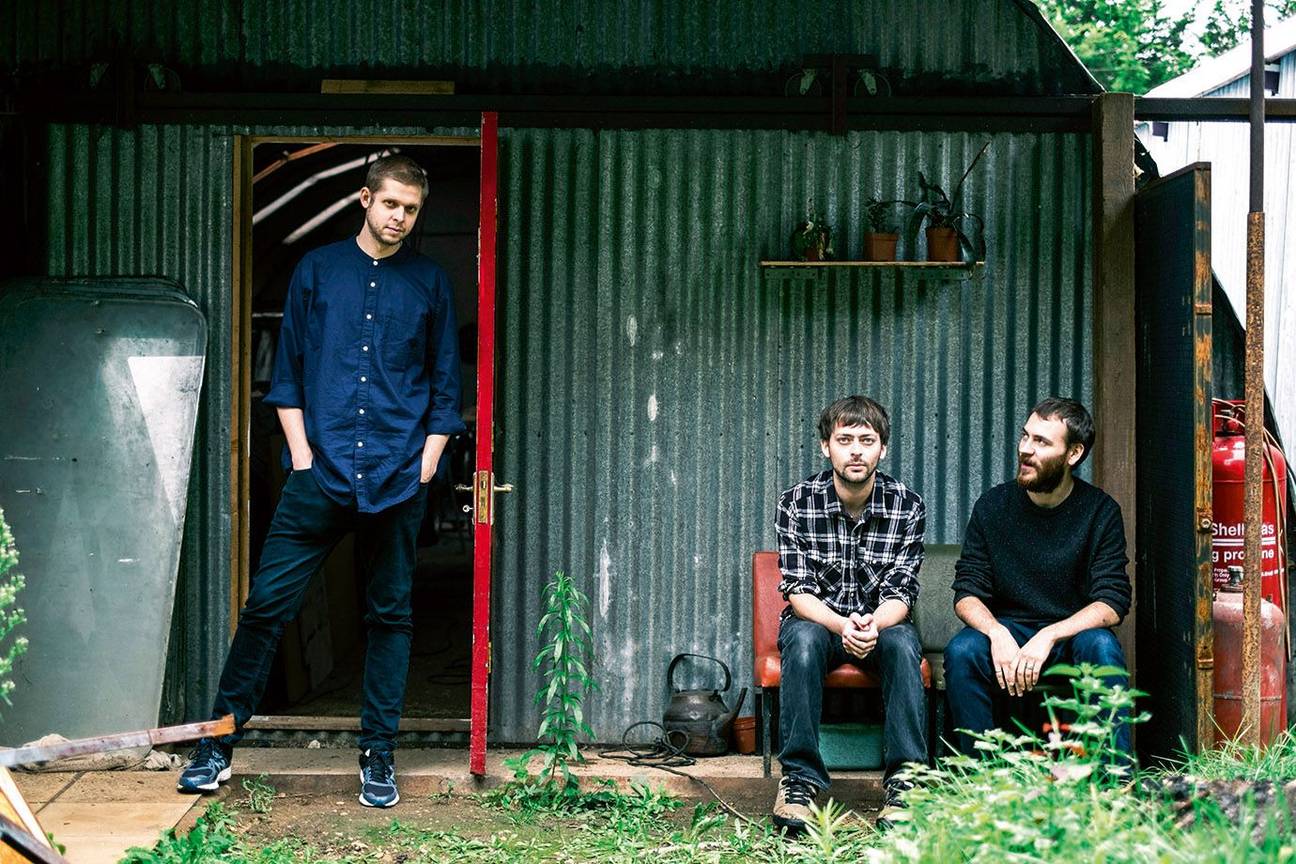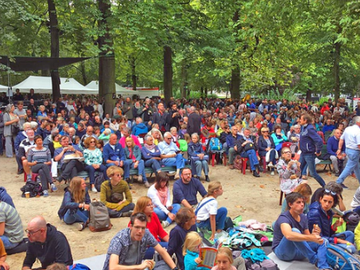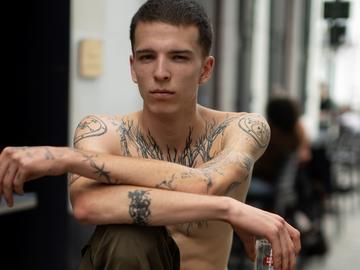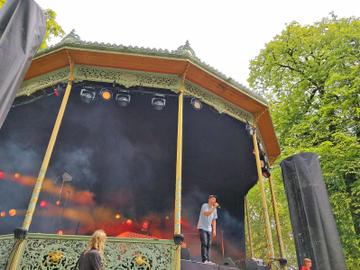The Feeërieën will again add a touch of magic to the Warandepark/parc de Bruxelles with the right lighting and a series of enchanting musical adventures. Like the hypnotic piano trio Mammal Hands, who are in the vanguard of the flourishing UK jazz scene.

© Tom Barrett
The Feeërieën on the other side of the UK jazz scene
Mammal Hands currently play at jazz, folk, world, and rock festivals, and that is precisely what saxophonist Jordan Smart likes best about his job. “Because we aren’t a jazz band in the strict sense of the word, we appeal to a very wide range of people. We’re always surprised by how often people who didn’t know our instrumental music come up to us after concerts and say that they never expected to enjoy it so much!”
The stylish and intoxicating mosaic that Jordan assembles with his brother, pianist Nick Smart, and drummer/percussionist Jesse Barrett, which blends jazz, folk, Indian sounds, and contemporary classical, is beginning to resonate increasingly widely after three albums, including outside England.
At the Feeërieën you will be playing a double bill with Kamaal Williams, along with saxophonist Shabaka Hutchings, the pioneer of the new wave of British jazz. Do you feel any affinity with them?
Nick Smart: We don’t live in London, so we aren’t really in the same scene, but we do of course see their bands on tour sometimes.
We especially like Shabaka Hutchings’s bands, like Sons of Kemet and The Comet Is Coming, but we also really like Alfa Mist, a London-based producer who mixes hip hop with soul, jazz, and grime.
You are signed to Gondwana Records, a label from Manchester.
Nick: Yes, they expressed an interest when we were still looking for our own identity. Nick Blacka of GoGo Penguin, who released his first albums on Gondwana, spoke to us after a festival set in Birmingham and introduced us to the label manager Matthew Halsall.
Gondwana has been like family to us since then. The label embodies the other side of the UK jazz scene because they represent almost all the interesting British jazz infused bands that are not from London.
They recently also signed the Belgian band STUFF.
Nick: We love them. We’ve known them for a long time and we’ve seen them play live. They are an excellent example of the boundless urge to expand among the current cohort of jazz musicians, and the only band with an EWI (Electronic Wind Instrument).
Portico Quartet was also on the label. Just like you, they started out as buskers. They played on the South Bank in London…
Nick: …and we played in our hometown of Norwich, a city in eastern England. That is how Jordan and I met Jesse. We played sax and classical guitar, he played percussion with another group of buskers. None of us have ever been trained at a conservatory. The street was our most important school. Instead of doing what we should have been doing according to a certain tradition, we went in our own insular direction.
Jordan Smart: We started when we were sixteen. A job would have paid five pounds per hour. Busking we were able to make more in two hours than we would otherwise have made in a whole day. We could practice our hobby at the same time and prepare for later stage performances.
How do you learn to play the saxophone without formal music education?
Jordan: I mainly learned it on my own. I played the piano before, took some lessons, learned about harmony and the other fundamentals, and then I just transferred that knowledge.
More than anything else, it is the interplay of sax and piano that distinguishes you from other piano trios and what makes your hypnotic compositions sound more like contemporary classical than jazz.
Nick: Yes, we incline to classical music, but also to folk. We just like to interweave patterns and melodies. It often results in very repetitive stuff.
Your band name is Mammal Hands, and with tracks like “Boreal Forest”, “Solitary Bee”, and “Living Frost”, there are a lot of references to nature on your new album Shadow Work.
Nick: Instrumental music leaves the last word about the content of a composition with the listener. A title is just an indication.
Jordan: But it is true that the theme pops up quite often, as it did on our debut Animalia (2014) and on Floa (2016). Our artwork and videos are also inspired by it.
We are concerned about global warming and other environmental issues, but we try not to make literal statements about them. Infusing the music with our emotions is more efficient. And none of us really has a way with words anyway.
Nick: At the same time, the theme connects quite well with the way we work: organic and intuitive. Ideas grow over time without us analysing them too deeply. We don’t want to force anything.
The album was recorded after a long tour. Did that have an influence?
Nick: Even on that tour, we were constantly shuttling between the studio and the airport. It was a very hectic time.
Jordan: The juxtaposition between intense craziness, things that seem out of control, and looking for something peaceful at home made its way onto the album’s sound because it dominated our lives at the time. “Boreal Forest” is a good example because it exudes both something frantic and something very serene.
Feeërieën 27 > 31/8, Warandepark




Fijn dat je wil reageren. Wie reageert, gaat akkoord met onze huisregels. Hoe reageren via Disqus? Een woordje uitleg.